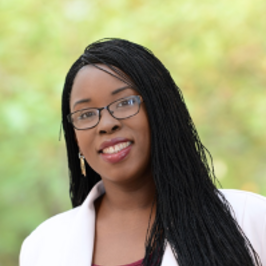
Assistant professor of chemical and environmental engineering Kandis Leslie Abdul-Aziz at the Marlan and Rosemary Bourns College of Engineering (BCOE) at the University of California Riverside (UCR) has been awarded a $538,000 National Science Foundation (NSF) CAREER Award to develop a novel approach to convert greenhouse gases into chemicals that can be used as energy sources. NSF CAREER awards are awarded to assistant professors to fund research that is expected to form a firm foundation for a lifetime of leadership in integrating education and research.

Greenhouse gases are made up of the usual suspects: carbon dioxide caused by fossil fuel use, methane and nitrous oxide caused by agricultural activities, and fluorinated gases caused by industrial processes. With carbon dioxide emissions alone having increased by 90 percent since 1970, scientists are in a race against time to combat the resulting global warming.
One strategy to reduce these CO2 emissions, notes the U.S. Environmental Protection Agency, is “carbon capture and sequestration,” essentially capturing and/or converting those molecules to higher-value chemicals – exactly the research Abdul-Aziz is conducting with this NSF CAREER Award.
Abdul-Aziz will use a special family of perovskite materials to both capture CO2 and catalyze its conversion into hydrocarbons by reaction with methane. These hydrocarbons – syngas, ethane and ethylene, can be readily converted into polymers and fuel as future supplies of energy and chemical raw materials.
“I am excited to work on new technology to convert carbon dioxide and methane into usable chemical commodities,” said Abdul-Aziz. “The approach developed in this project will provide a route to optimize material properties and CO2 utilization for both lab and process scales.”
Abdul-Aziz continued, “Additionally, our research will address the challenges of using atmospheric CO2 as a feedstock, including separation from air or waste streams and efficient conversion to larger organic molecules.”
The grant will also increase access to research opportunities in the sustainability space for women students of all levels – from pre-college to graduate level. Abdul-Aziz plans to develop an annual graduate preparation retreat for first-year graduate women in engineering, research opportunities for undergraduate women and transfer students, and hands-on engineering activities for K-18 girls.
To learn more about Abdul-Aziz’s latest research, visit the Sustainable Catalysis and Materials Group website.